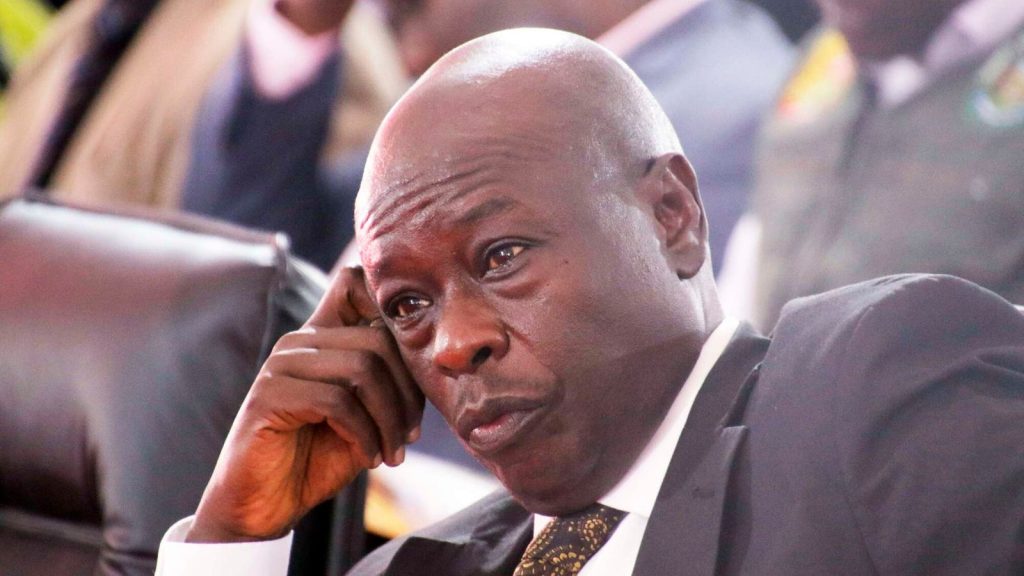In a significant political move, Kenyan lawmakers have initiated the impeachment process against Deputy President Rigathi Gachagua.
A decisive total of 281 members of parliament backed the motion, comfortably exceeding the required two-thirds majority.
This decision follows a thorough hearing process where Gachagua faced serious accusations, including allegations of corruption, undermining presidential authority, and fostering sectarian tensions.
The motion has now been forwarded to the Senate, which will act as the trial court and is expected to reach a final decision within ten days.
For the motion to succeed in the Senate, a two-thirds majority will be necessary.
On Tuesday, Deputy President Gachagua appeared before parliament to defend himself against the eleven impeachment charges laid against him.
He proclaimed his innocence, asserting that he prioritizes the interests of the Kenyan populace.
Nevertheless, opposition to the impeachment surfaced from some lawmakers.
Jane Miana, the Kirinyaga Woman Representative, criticized the motion, stating, “This motion is frivolous and lacks merit. It is merely a political scheme aimed at discrediting an honest man for being truthful.”
Deputy Minority Leader Robert Mbui added, “Mr. Speaker, I wish we could redirect the energy spent on this impeachment toward addressing pressing issues in education, infrastructure, the rising cost of living, and unemployment. These are the issues that require our urgent attention.”
Gachagua has firmly denied the allegations against him. He clarified that the properties named in the accusations, such as Olive Gardens Hotel and Vipingo Beach Resort, belong to his deceased brother.
He also rejected claims that he coerces state officials for contracts or misappropriates funds.
During his defense in the National Assembly, Gachagua faced an impeachment motion put forth by Kibwezi West MP Mwengi Mutuse.
The motion, officially presented by Speaker of Parliament Moses Wetang’ula last Tuesday, detailed eleven grounds for impeachment.
According to the National Assembly Order Paper, the mover of the motion, Mwengi, utilized over an hour to elaborate on the charges.
Gachagua previously stated, “I have no plans to resign, and I will fight this through to the end.” He assured his commitment to defend himself in parliament.
For the impeachment to be successful, it is sufficient to establish that just one of the eleven charges against the deputy president is valid.
The charges discussed include allegations linking Gachagua to violent protests that occurred three months ago.
Additional claims suggest his involvement in corrupt activities and his role in inciting tribalism and political discord.
In his arguments, Mwengi claimed that Gachagua has committed gross misconduct by openly contradicting presidential policies and undermining decisions made by the cabinet.
Furthermore, the MP alleged that the deputy president controls twenty companies and utilizes some for economic crimes against the state.
The Process of Impeaching the Deputy President in KenyaAs the House debates Mwengi’s impeachment motion, the following procedures must be adhered to as per the Kenyan Constitution:
Once the arguments from both the mover and the defender of the motion have been presented, the House will vote.
If 233 MPs support the motion, it will be forwarded to the Senate within two days.
If it fails to secure 233 votes, the matter will cease. Conversely, if 117 MPs oppose it, the deputy president will remain in office.
If the motion is passed to the Senate, the Senate Speaker will convene a session regarding the National Assembly Resolution within seven days. The Senate has the option to establish an 11-member committee or hold a plenary session.
Regardless of the chosen route, the Senate must complete all investigations, hearings, and voting on the impeachment within ten days.
A minimum of 45 Senators must vote in favor of the impeachment charges for them to be upheld or for the deputy president to be removed from his position.

